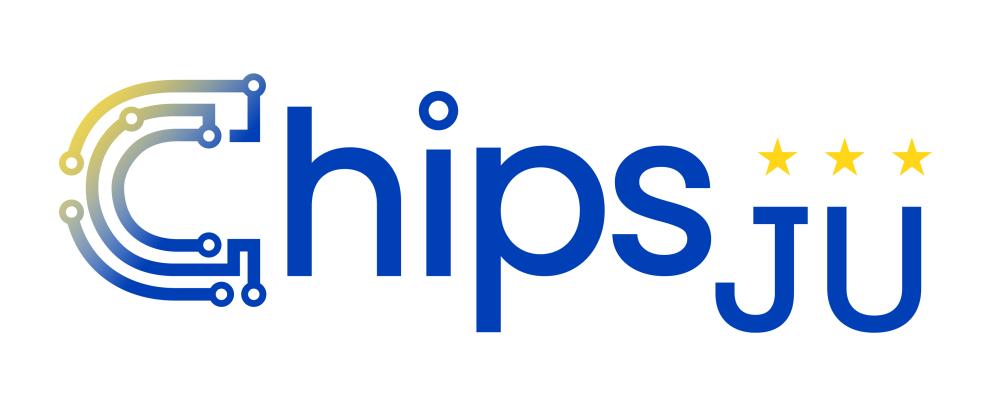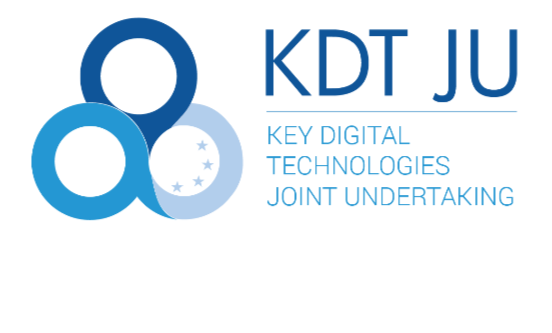Chips JU - former Key Digital Technologies Joint Undertaking (KDT JU) and former ECSEL Joint Undertaking - (other organisations)
More information for Flemish organisations can be found on the VLAIO website for Chips JU
former
More information for Flemish organisations can be found on the VLAIO website for KDT JU
Summary
Budget
Official information source
https://european-union.europa.eu/institutions-law-budget/institutions-and-bo...Description
Other organisations
Other organisations include bodies set up as part of EU programmes and public-private partnerships between the European Commission and the industry.
Chips Joint Undertaking

Overview
- Role: Chips JU is a European tri-partite partnership that is boosting the development and adoption of advanced nano-electronic chip technologies and systems manufactured in Europe.
- Executive Director: Jari Kinaret
- Members or partners:
- the EU, represented by the Commission;
- the following participating states: Austria, Belgium, Bulgaria, Croatia, Cyprus, Czechia, Denmark, Estonia, Finland, France, Germany, Greece, Hungary, Iceland, Ireland, Israel, Italy, Latvia, Lithuania, Luxembourg, Malta, the Netherlands, Norway, Poland, Portugal, Romania, Slovakia, Slovenia, Spain, Sweden, Türkiye;
- the following industrial associations: AENEAS, EPoSS and INSIDE representing the micro- and nanoelectronics, smart integrated systems, and embedded/cyber-physical systems sectors.
- Established in: 2023
- Number of staff: 49
- Location: Brussels (Belgium)
- Website: Chips Joint Undertaking
What it does
A European tri-partite partnership, Chips Joint Undertaking will boost the development and adoption of advanced nano-electronic chip-technologies and systems manufactured in Europe.
In the coming years, Chips JU will develop, together with the European nanoelectronics community and the Member States, a strong portfolio comprising several pilot lines for:
- advanced nanoelectronics’ technologies
- a design platform for the design of advanced chips
- a broad set of projects that make use of those technologies to innovate all along the value chain in mobility, energy, health, robotics, and chip manufacturing
This portfolio of actions will be supported with a network of competence centres all over Europe that will facilitate the access to those actions for European start-ups, SMEs, universities, and larger companies.
The Chips JU general objectives are to:
- reinforce the EU’s strategic autonomy in electronic components and systems to support future needs of vertical industries and the economy at large
- establish the EU’s scientific excellence and innovation leadership in emerging components and systems technologies, and promote the active involvement of SMEs
- ensure that components and systems technologies address Europe’s societal and environmental challenges
- enable the development and deployment of cutting-edge semiconductor technologies, cutting-edge quantum technologies and the innovation of established technologies that will reinforce advanced design, systems integration and chip production capabilities in the EU
Who benefits?
Any business or research organisation in the participating states.
Further information
Chips JU builds on its predecessor, the successful Key Digital Technologies Joint Undertaking. It has new objectives, a revised larger budget, and is planned to continue until 2027.
Regulation strengthening Europe’s semiconductor ecosystem and amending the EU’s Chips Act
Regulation establishing the Joint Undertakings under Horizon Europe
Contact
Chips Joint Undertaking
Website: https://www.chips-ju.europa.eu/
Email: enquiries@chips-ju.europa.eu
Postal address: White Atrium Building, Avenue de la Toison d'Or/Guldenvlieslaan 56-60, 1060 Bruxelles/Brussel, Belgium
Social media
-------------------------------------------------------------------------------------------------------------------------------------------
Previous JU:
KDT - Key Digital Technologies Joint Undertaking

Overview
- Role: The Key Digital Technologies Joint Undertaking (KDT JU) is a public-private partnership managing a research and innovation programme aiming to reinforce the EU’s strategic autonomy in the electronic components and systems sector.
- Director: Bert De Colvenaer
- Members or partners:
- the EU, represented by the Commission;
- the following participating states: Austria, Belgium, Bulgaria, Croatia, Cyprus, Czechia, Denmark, Estonia, Finland, France, Germany, Greece, Hungary, Iceland, Ireland, Italy, Latvia, Lithuania, Luxembourg, Malta, the Netherlands, Norway, Poland, Portugal, Romania, Slovakia, Slovenia, Spain, Sweden;
- the following industrial associations: EPoSS, AENEAS and INSIDE representing the micro- and nanoelectronics, smart integrated systems, and embedded/cyber-physical systems sectors.
- Established in: 2021
- Number of staff: 31
- Location: Brussels (Belgium)
- Website: Key Digital Technologies Joint Undertaking
What it does
The KDT JU funds projects to ensure the EU has the necessary expertise in key enabling technologies to be a competitive leader of the world’s digital economy. This includes developing advanced semiconductors and applications that are critical to European society and contribute to the EU digital strategy and the European Green Deal. KDT JU funded projects provide smart solutions for:
- mobility
- healthcare
- the environment
- energy
- a digital society
- manufacturing
The KDT JU objectives are to:
- reinforce the EU’s strategic autonomy in electronic components and systems
- establish EU scientific excellence and innovation leadership in emerging components and systems technologies
- ensure that components and systems technologies address Europe’s societal and environmental challenges
- support research and development for establishing design and production capabilities in Europe for strategic application areas
- launch a balanced portfolio of large and small projects supporting the fast transfer of technologies from the research to the industrial environment
- foster a dynamic EU-wide electronic components and systems ecosystem based on digital value-chains with simplified access to newcomers
- support research and development for enhancing component technologies that guarantee security, trust and energy-efficiency for critical infrastructures and sectors in Europe
- mobilisation of national resources and ensure coordination of EU and national research and innovation programmes in the field of electronic components and systems
- establish consistency between the KDT JU’s strategic research and innovation agenda and EU policies
The KDT JU fund projects through open and competitive calls for proposals every year.
Who benefits?
Any business or research organisation in the EU or in other countries associated to the Horizon Europe programme can participate in projects.
However, businesses and organisations based in other countries may also be eligible to participate under certain conditions.
Further information
The KDT JU builds on its predecessor, the successful ECSEL JU programme. The following documents provide information on that programme.
Book of Projects (examples of past projects):
Powering the Digital Transformation in Europe (book)
Innovation in Action (together with other Joint Undertakings)
Council Regulation establishing the Joint Undertaking under Horizon Europe, including KDT JU
Regulation establishing the Horizon Europe programme
ECSEL JU Annual Activity Report for the year 2020
Contact
Key Digital Technologies Joint Undertaking
Website: https://www.kdt-ju.europa.eu/
Email: enquiries@kdt-ju.europa.eu
Phone number: 00 32 2 221 81 02
Postal address: White Atrium Building, Avenue de la Toison d'Or/Guldenvlieslaan 56-60, 1060 Bruxelles/Brussel, Belgium
--------------------------------------------------------------------------------------------------------------------------------------------
Previous JU:
ECSEL Joint Undertaking
ECSEL JU Achieved:
- 16
Calls - 92
Projects - More than
3100
participations - 4.8 bn€
RDI cost - 2.2 bn€
EU and National funding - 2.6 bn€
Industries' own financing
- Role: Manages a research and innovation programme to strengthen the EU's electronic components and systems industry
- Director: Bert De Colvenaer
- Members or partners:
- - the EU (through the Commission)
- - Horizon 2020 Member States and Associated Countries, on a voluntary basis
- - 3 associations (EPoSS, AENEAS and ARTEMIS Industry Association) representing stakeholders in micro- and nanoelectronics, smart integrated systems and embedded/cyber-physical systems.
- Established in: 2014
- Number of staff: 32
- Location: Brussels (Belgium)
- Website: ECSEL Joint Undertaking
ECSEL is a public-private partnership for electronic components and systems.
It manages a research and innovation programme for the development of a strong and globally competitive electronics components and systems industry in the EU.
What it does
ECSEL brings together EU stakeholders from the public sector, industry and academic institutions.
It supports research, development and innovation in electronics in key applications.
For example:
- smart solutions for mobility
- healthcare
- the environment
- energy
- digital society
- manufacturing.
It also promotes key capabilities, so it aims to:
- maintain semiconductor and smart systems manufacturing in the EU
- ensure EU independence in electronic components and systems
- secure a leading position in design and systems engineering
- bridge the gap between research and practical applications
- attract private investment by aligning strategies between EU countries
- create a world-class infrastructure for design and manufacture of electronic components
- overcome obstacles to effective research and innovation
- develop advanced ecosystems of innovative SMEs.
Funding
ECSEL JU funds Research, Development and Innovation projects in Electronic Components and Systems, engaging finances from the EU, countries and participants for innovative activities that make a real difference in our society and your personal life.
It awards funding through annual, open and competitive calls for proposals.
Structure
ECSEL's governance includes the following bodies:
- The governing board has overall responsibility for the strategic orientation and the operations of ECSEL and supervises the implementation of its activities.
- The executive director is responsible for the day-to-day management of ECSEL.
- The public authorities board is responsible for calls for proposals and allocating public funding.
- The private members board is responsible for drawing up the draft multiannual strategic research and innovation agenda and the draft research and innovation activities plan. It is made up of 3 industry associations: EPoSS, AENEAS and ARTEMIS Industry Association.
Who benefits
Any legal entities (e.g. businesses, research organisations, international European interest organisations based in the EU or in Horizon 2020 associated countries).
However, legal entities based in other non-EU countries and international organisations may be also be eligible if:
- funding for such participants is provided for under a bilateral scientific and technological agreement or any other arrangement between the EU and the international organisation or non EU country
- ECSEL considers that the entity's participation is essential for carrying out the project funded by Horizon 2020.
See also
Memorandum of Understanding with the Regional Government of Carinthia, Austria

